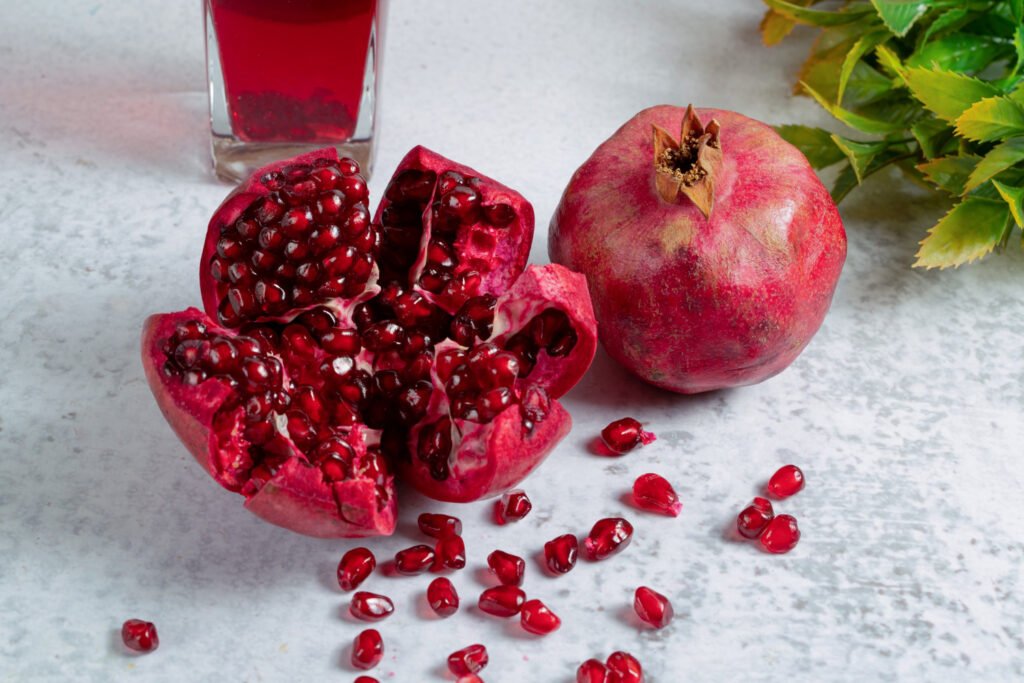
Overview
In the quest for better health, fruits stand out as one of the most nutrient-dense food groups you can incorporate into your diet. While all fruits offer health benefits, some are exceptionally rich in vitamins, minerals, fiber, and protective plant compounds. Consuming fruits like blueberries, citrus fruits, apples, and pomegranates can significantly enhance your diet, reduce the risk of various health conditions, and promote overall well-being.
1. Blueberries: Tiny Powerhouses of Nutrition
Blueberries are often lauded as one of the healthiest fruits available. Extensive research suggests that regular consumption of blueberries can lower the risk of numerous health issues, including type 2 diabetes and heart disease. These berries are rich in antioxidants and anti-inflammatory compounds such as flavonoids and anthocyanins. Moreover, they are packed with fiber, vitamin C, and other essential nutrients, making them a top choice for anyone looking to improve their diet.
2. Cherries: Sweet and Tart Health Boosters
Cherries, whether sweet or tart, are loaded with health-boosting substances. They contain polyphenols like anthocyanins, catechin, epicatechin, and hydroxycinnamates, which have potent antioxidant and anti-inflammatory properties. Regular consumption of cherries can help reduce the risk of inflammatory diseases such as arthritis, heart disease, and certain cancers. They are rich in fiber, vitamin C, and potassium, making them a nutritious choice.
3. Pomegranate: The Ancient Superfruit
Pomegranates are known for their sweet, crunchy seeds called arils. Just one cup of pomegranate arils provides 20% of your daily vitamin C needs and 17% of your daily folate needs. Pomegranates are packed with antioxidants, which can enhance athletic performance, heart health, brain function, and protect against various health conditions. Pomegranate juice is also a popular choice for its health benefits.
4. Raspberries: Fiber-Rich Gems
Raspberries are among the best sources of dietary fiber, offering nearly 35% of the daily recommended intake in just one cup. High-fiber diets help promote healthy digestion, prevent constipation, and support beneficial gut bacteria. In addition to being high in fiber, raspberries are abundant in vitamins C and K, manganese, and potent antioxidants.
5. Avocados: Nutrient-Dense and Heart-Healthy
Avocados are unique fruits that provide heart-healthy fats and fiber while being low in carbohydrates. One half of an avocado contains nearly 7 grams of fiber and is rich in monounsaturated fats, which support healthy blood lipid levels. Avocados also offer vitamin C, vitamin E, folate, and magnesium, contributing to overall health. Studies show that avocados can aid in blood sugar regulation, weight management, and heart health.
6. Oranges: Citrus Powerhouses
Oranges are a staple fruit known for their high vitamin C content. A single navel orange covers nearly 92% of your daily vitamin C needs, supporting immune function, collagen synthesis, and iron absorption. Regular consumption of citrus fruits like oranges is linked to a lower risk of diseases such as type 2 diabetes and certain cancers.
7. Apples: Heart-Friendly and Fiber-Rich
Apples are renowned for their heart-health benefits. They are rich in soluble fiber, which aids in reducing cholesterol levels and maintaining healthy blood pressure. A daily intake of one small-to-medium apple can reduce the risk of heart disease by improving cholesterol and inflammatory markers. Apples are also a convenient and delicious snack option.
8. Grapefruit: Nutrient-Dense Citrus
Grapefruits offer a tart yet nutritious addition to your diet. One cup of grapefruit segments provides almost 100% of your daily vitamin C needs. They are also rich in flavonoids with anticancer properties. Including grapefruit in your diet can support skin, heart, and immune health.
9. Peaches: Sweet and Nutritious
Peaches are best enjoyed fresh to maximize their nutritional benefits. Fresh peach peels and pulp are rich in antioxidants and anti-inflammatory compounds. They are also good sources of vitamin C, vitamin A, potassium, and fiber. Research indicates that fresh peaches offer higher health benefits compared to cooked peach products.
10. Blackberries: Antioxidant-Rich and Delicious
Blackberries are packed with vitamins, minerals, fiber, and protective plant compounds. They are high in anthocyanins, flavonols, and ellagitannins, which provide strong antioxidant capacity. Consuming blackberries can help reduce the risk of heart disease by lowering blood pressure and improving blood lipid levels.
11. Pineapples: Tropical Nutrient Bombs
Pineapples are loved for their sweet taste and juicy texture. They are low in calories but high in vitamins and minerals like vitamin C, copper, and manganese. Pineapples also contain bromelain, an enzyme with anti-inflammatory and immune-supportive properties.
How Much Fruit Should You Eat Per Day?
Health organizations recommend aiming for four to five servings of fruits and vegetables per day. A serving size of fruit is generally one medium fruit or half a cup of sliced fruit. Incorporating a variety of fruits into your diet can protect against chronic health conditions and promote longevity.
Tips for Consuming Fruit
For maximum nutritional benefit, consume fresh or frozen fruits without added sugars. Avoid canned fruits in heavy syrup and dried fruits coated with sugar. Fresh fruits like apples and oranges make convenient snacks, while fruits can also enhance recipes such as overnight oats, salads, and desserts.
Embrace the Power of Fruits
Including a diverse range of fruits in your diet can significantly boost your health. From reducing the risk of chronic diseases to providing essential nutrients, fruits are a delicious and effective way to enhance your well-being. Enjoy them fresh, incorporate them into meals, and savor the natural sweetness and nutritional benefits they offer
A Quick Review
Fruits are nutrient-dense, offering essential vitamins, minerals, fiber, and antioxidants. This guide highlights the top 15 fruits for optimal health, including blueberries, cherries, pomegranates, raspberries, and avocados. Blueberries and cherries support heart health, while pomegranates boost vitamin C and folate. Raspberries provide high dietary fiber, and avocados offer heart-healthy fats. Oranges and apples enhance immune and heart health. Grapefruits, peaches, blackberries, and pineapples add vital nutrients, promoting overall well-being and reducing chronic disease risks
FAQS
What are the health benefits of blueberries?
Blueberries are rich in antioxidants and can reduce the risk of diabetes and heart disease.
How do cherries help reduce inflammation?
Cherries contain polyphenols with antioxidant and anti-inflammatory properties.
Why are avocados considered heart-healthy?
Avocados provide monounsaturated fats and fiber, which support heart health.











